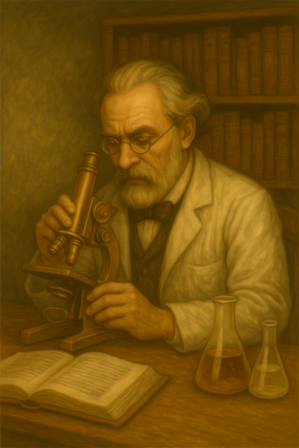The Lost Science of Ancient Traditions: Rethinking Religious Wisdom
Introduction
In every corner of the world, religious identity is deeply intertwined with culture and society. In India, the majority of individuals follow Hinduism or Sanatan Dharm, while Christianity prevails in Western countries and Islam dominates in the Gulf. From early childhood, we are taught that our language, culture, and religion stand superior to all others. So deeply ingrained are these beliefs that they become as much a part of us as the very blood flowing through our veins.
The Power of Early Indoctrination
From a young age, our environment instills a sense of pride in the traditions we inherit. We rarely encounter individuals who are genuinely curious or appreciative of beliefs outside their own. When challenged—asking someone to imagine being born into a different religion—many find themselves at a loss for words. Such moments spark introspection, prompting us to reconsider the origins and validity of our inherited convictions.
Religion: Wisdom to Be Acquired, Not Inherited
In my previous writings, particularly in the article titled “The Essence of Religion: A Universal Path Beyond Boundaries ,” I argued that religion is not simply something we are born into. Instead, it is a profound source of wisdom that we acquire over time through learning and experience. Just as we study science, literature, and art, we can explore various religious teachings to enhance our personal growth. Embracing a global perspective—drawing insights from multiple faiths—can ultimately lead to a more enriched and balanced understanding of life.
Ancient Science in Spiritual Teachings
One compelling example of the deep wisdom embedded within our ancient traditions can be found in the concept of the Universal Law of Energy—a principle well known in modern science, stating that energy can neither be created nor destroyed, only transformed. 
In the Mahabharata, Lord Krishna teaches Arjun:
वासांसि जीर्णानि यथा विहाय नवानि गृह्णाति नरोऽपराणि।तथा शरीराणि विहाय जीर्णा- न्यन्यानि संयाति नवानि देही।।
For the sake of clarity, here is its essence in English:
Just as a person discards old garments and puts on new ones, similarly, the soul is neither born nor does it die. It simply transitions from one worn-out body to a new physical form.
This allegory not only encapsulates the eternal nature of the soul in Sanatan Dharm but also mirrors the scientific principle regarding the conservation and transformation of energy. When we substitute the term “energy” with “soul,” we notice an elegant parallel: both the ancient and modern perspectives acknowledge the perpetual, transformative nature of existence. Such insights invite us to appreciate the vast, though often underrecognized, scientific knowledge of our ancestors.
The Dilemma of Blind Faith and Superstition
Despite the profound ideas encapsulated in our spiritual texts, there is a tendency to adhere to religious practices and superstitions without a true understanding of their underlying wisdom. Many followers of Hinduism, for instance, stick to rituals and dogmas handed down through generations without questioning their deeper significance. On the other hand, adherents of other religions might dismiss these ancient teachings as mere myth, ignoring the possibility that these narratives are symbolic repositories of advanced knowledge.
This gap in understanding perpetuates a cycle where religious wisdom remains confined within cultural boundaries. By accepting our inherited beliefs without scrutiny, we risk missing out on a broader, more universal perspective—a perspective that sees religion as an evolving dialogue with humanity about the nature of existence.
Toward a Global Spiritual Perspective
Imagine if we approached our religious teachings as we do scientific theories: with curiosity, critical thinking, and a willingness to learn from various sources. A global perspective on spirituality encourages us to study multiple religions and extract their valuable insights, without the need to subscribe fully to any one doctrine. Such an approach does not deny our cultural heritage; rather, it enriches it by integrating diverse ideas into a more coherent vision of human wisdom.
In doing so, we free ourselves from the restrictions of blind adherence. We begin to appreciate that the wisdom of any religious tradition—be it Hinduism, Christianity, Islam, or others—is not confined to literal interpretations or ritualistic practices. Instead, it serves as a guide, evolving and adapting with our growing understanding of the world.
Conclusion
Our religious identities are often shaped by the circumstances of our birth and the indoctrination we experience early in life. Yet, true wisdom comes from learning, questioning, and embracing a range of perspectives. The ancient texts of Sanatan Dharm, with their profound insights into the nature of the soul and the universe, remind us that what we dismiss as myth may well be the key to unlocking deeper truths about life and energy.
Let this serve as an invitation—not to abandon your beliefs, but to enrich them. Explore the wisdom of other traditions, and discover for yourself that religion is not a static dogma but a dynamic source of knowledge. By transcending the boundaries of cultural supremacy, we open the door to a more inclusive, informed, and ultimately liberating understanding of our world.

